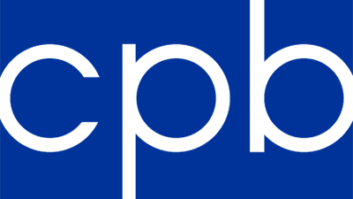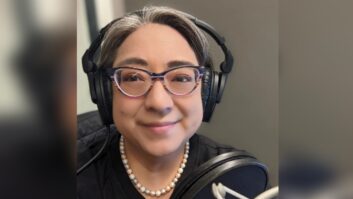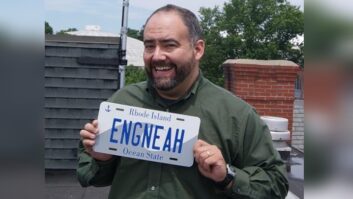Ed. Note: On Dec. 2, we added to this story details regarding NPR’s still-outstanding allegations against CPB, and about NPR’s assertion about CPB’s working group for public media distribution worked directly with the Public Media Infrastructure.
After a contentious battle in court, National Public Radio and the Corporation for Public Broadcasting reached a settlement late Monday evening. For both sides, there are raw emotions and feelings that linger, with the hopes that they can be put aside in a new landscape for public media distribution.
According to the joint stipulation reviewed by Radio World, NPR dismissed three counts of allegations without prejudice that CPB unlawfully withheld from NPR federal funds appropriated by Congress for interconnection purposes.
It also dismissed its request for an order enjoining CPB from disbursing federal funds to PMI.
NPR said that the allegations against CPB are still part of its Executive Order lawsuit. Its litigation challenging the constitutionality of President Trump administration’s Executive Order will continue, with a hearing scheduled for Dec. 4.
But in what NPR sees as a victory on its side, the existing Public Radio Satellite System distribution of public media programs, which NPR operates, will receive approximately $35 million in federal funds from CPB over five years. NPR argued that CPB had reneged on its original distribution agreement in April as a result of pressure from President Trump’s administration.
NPR also announced Monday it would waive all fees for the stations associated with the satellite service for two years.
Blindsided
CPB President and CEO Patricia Harrison said in a call with Radio World that she did not see the legal action from NPR coming and still feels hurt. She contended that all actions that went into putting out a request for proposals for public media distribution were done with public media’s best interest in mind.
[Related: “The Future of Public Media Is in Dispute”]
In October, NPR had filed a suit focused on CPB funding for NPR’s operation of a satellite distribution system for local public radio stations, after CPB had announced it had awarded a five-year, $57 million grant to PMI.
In a release, PMI said that the agreement means the newly-formed nonprofit will move forward in partnership with stations across the U.S. for content delivery.
CPB said it had discussed internally the idea of an independent distributor for content internally as far back as 2024, before President Trump was elected.
“The idea that we would be kowtowing to the current presidential administration when we were in the process of winding down ourselves, it just doesn’t make any sense,” Harrison said.
But NPR, in documents referenced during court hearings last month in Washington, D.C., centered on what appeared to be a change of heart early in April, after, according to the organization’s own reporting, CPB’s board chair and two senior executives met with a top White House budget official who attested to her “intense dislike for NPR.”
NPR referenced statements by U.S. District Court Judge Randolph Moss, who said he could not understand what changed between April 2 and April 4 “other than the fact that CPB was looking for ways to try and ingratiate itself with the administration and perhaps folks on the Hill in a desire to survive.”
“While we entered into this dispute with CPB reluctantly,” NPR CEO Katherine Maher said in a release, “we’re glad to resolve it in a way that enables us to continue to provide for the stability of the Public Radio Satellite System, offer immediate and direct support to public radio stations across the country, and proceed with our strong and substantive claims against this illegal and unconstitutional executive order.”
CPB said that NPR’s own reporting on the legal battle was selective in citing quotes from Moss.
“In the end, the very reason NPR filed the suit — to block the grant that went to PMI — was dismissed,” Jeff Robbins, a lawyer for CPB, said.
Radio World has reached out to NPR for further comment on its side of the story.
Still breathing
CPB is still operating with a staff of approximately 30 people, Chief Operating Officer Kathy Merritt told Radio World, with many staffers multitasking.
While it began winding down its operations on Sept. 30, Merritt and Harrison said the organization will stay open as long as it takes to ensure existing funding is distributed properly.
“The really important thing in the last two months, everyone who is a part of this institution has made me really proud,” Merritt said.
“A third of PRSS stations are not NPR members,” Merritt continued. “The future of distribution, with our independent members in mind, was what we were looking for most as far as when we requested proposals.”
In August, CPB had contracted Deloitte to independently evaluate the competing proposals, which it said it chose PMI’s as the most capable for the job. NPR did submit a proposal as part of the process.
But NPR told Radio World that Deloitte worked directly with the PMI group on their proposal, as laid out in court filings — an advantage that was not offered to NPR.
Moving forward
In addition to waiving PRSS fees, NPR said it will accelerate the development of “innovative and cost-effective solutions” for terrestrial interconnection and distribution services.
NPR will also continue with its litigation challenging the constitutionality of the Trump administration’s original executive order clawing back federal funding for public media, with a hearing scheduled for Dec. 4.
CPB remains a defendant for purposes of those claims, agreeing not to implement or enforce the executive order unless ordered by a court and agreeing with NPR that the order is unconstitutional.
In the end, animosities between the two public media entities are still evident. But Harrison spoke of it as a pivotal moment for all involved and said she will work toward making sure the new PMI and the existing PRSS are able to coexist.
She was also pleased that NPR has been able to hire several new journalists, the result of $1.9 million CPB had awarded to the public media outlet last year for editorial enhancement.
“To be winding down is quite sad and disappointing to begin with,” Harrison said. “But our goal right now, no matter how long it takes, is to leave public media in the best shape possible going forward.”
Comment on this or any article. Email [email protected].






